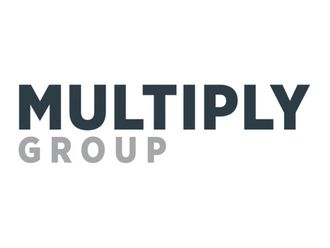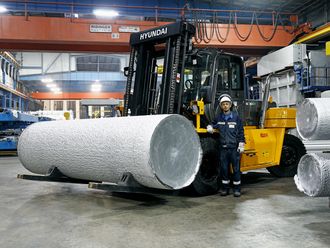Geneva: Nestle SA is losing ground in the US, its biggest market, to rival brands and private-label products, which may lead sales growth to miss the Nescafe maker’s long-term target, Sanford C. Bernstein analysts said.
The company’s product categories lost 75 basis points of market share during the first half on average after an 85 basis point decline in the final six months of 2011, Andrew Wood, the lead analyst, wrote in a research note published on Monday.
Nestle has lost ground in categories including packaged milk, ice cream and baby food in the US, a market that accounts for about a quarter of the Vevey, Switzerland-based foodmaker’s revenue, Bernstein said. The company last week named Paul Grimwood as chairman and chief executive officer of its US operations, replacing Brad Alford, who will retire in October after 32 years at the company.
The “trends have been worrisome for Nestle for some time and are getting worse,” said Wood, who used Nielsen market data for the revenue growth and market share estimates. The company’s weakening position means sales growth excluding acquisitions, disposals and currency shifts may miss Nestle’s long-term target of 5 per cent to 6 per cent in coming quarters, he said.
Private-label products are winning share from Nestle in areas including frozen pizza, while Unilever has been taking market share in salad dressings, according to Bernstein. Green Mountain Coffee Roasters Inc., the maker of Keurig brewers and single-serve pods, also has been gaining at Nestle’s expense. The Swiss company is losing ground to Abbott Laboratories in the US baby-food market, the analyst said.
Sales decline
Nestle’s US sales may decline by 1 per cent to 2 per cent in the final three quarters of this year after 1 per cent growth in the first quarter, according to Bernstein.
Price increases by Nestle in the US slowed to 2 per cent during the first half from 4 per cent growth in the second half of 2011, while the volume of goods sold declined 2 per cent during the first half, according to Bernstein. Nestle may be scaling back promotional activities in the market because it was “too aggressive” previously, Wood wrote.
“We believe that pricing will roll over but volumes will not recover enough to compensate, leading to slowing organic growth throughout the balance of 2012,” he wrote.
Nestle gets about a quarter of its US revenue from pet food. Bottled water accounts for 15 percent, frozen prepared food another 15 per cent and ice cream 10 percent, according to Bernstein.
Nielsen’s data should be interpreted as a “directional tool” rather than an “absolute” one, Wood said, adding that new enhancements have improved the data.
Grimwood has led Nestle’s UK and Ireland business since 2009.
Nestle is scheduled to report first-half results Aug. 9. Sales excluding acquisitions, divestments and currency shifts probably rose 5.4 per cent, according to the average of six analyst estimates compiled by Bloomberg. Growth excluding price increases was 2.5 per cent, the survey showed.












